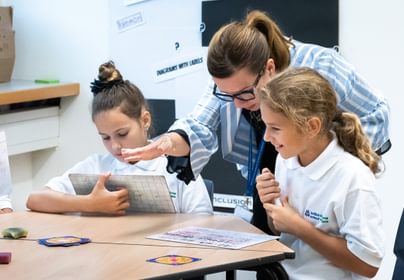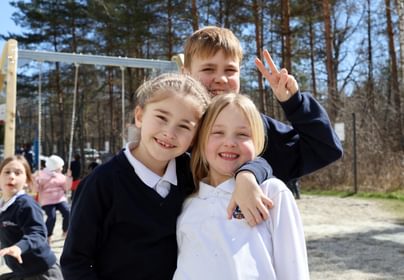This Block our theme has focused on the Humanities subjects and students and teachers throughout the school have been learning about the importance of our subjects in different ways.
We have been encouraging teachers and students to explore the humans behind the other subjects like Mathematics and the Sciences to better understand the role people and society have played in their development.
The Humanities are a broad range of subjects that are interested in understanding human behaviour, culture and society. Students of the Humanities think critically and speculatively within a historical context about the world around them and consider the interrelationships between people and their natural and social environments.
At BISL, students in Secondary school study the following Humanities subjects: history, geography, economics, business studies, computer science and global perspectives, whilst Primary students learn about the Humanities through different topics and take a more multidisciplinary approach to learning about people and their environments.
Primary classes this block have been learning about the Humanities subjects in many different ways. In Year 2, students have been “visiting” different continents, exploring the people and places that make our world so fascinating. Year 6 have spent the block studying the civilisations of the Mayan Empire, the Kingdom of Benin and the Abbasid Caliphate, learning about how they lived and the reasons for their decline.
In Secondary, assemblies were spent asking students to research, “Heroes of Humanity”, people who had either made a significant contribution to the Humanities subjects or individuals who through their actions have made a positive difference on society. I was really impressed with some of the research and choices that the students made. We had examples of incredible people like Nelson Mandela, Alan Turing and Michelle Obama whose impact on society is immeasurable. Students also found other less renowned heroes such as Raoul Wallenberg, Ella Baker and Malala Yousafzai who made some incredible choices to improve the lives of others.
Year 7 were taken on a guided tour around Ljubljana Castle as part of their History unit of work "Castles". They learned about the colourful and varied history of the castle and how the castle has played a huge part in the development of the city of Ljubljana. The tour took them through from the very start of the castle to the modern day and they met many colourful characters along the way such as a Roman soldier, Saint George and Emperor Frederick III of Habsburg and his wife Eleonor Helena of Portugal.
History students have also been exploring local history as part of their usual history topics. In Year 8, while looking at the impact of the Reformation and Counter-Reformation in Europe and England, students also evaluated the significance of the Reformation in Slovenia and its role in the development of the Slovene language. In Year 9, students touched base with local history in their research and presentations on the events and experiences of World War One, building on their causal study last block. Presentations ranged in focus, from the key battles and fighting locations in Slovenia, the experience of Slovene soldiers fighting during the war to the impact of war on emigration and Slovenia’s post-war status.
In English classes, Year 7 looked at Martin Luther King Jr.'s famous, “I have a Dream” speech, which is something that many students also study in history. The students then wrote their own speeches on how they would like the future to be. Year 8 combined English, Science and Humanities by looking at the history of the Space Race in the 1960s between the USA and USSR. Year 9 looked at the emotive and powerful poetry that came from World War One. Mr Kirwan noted that it was really useful that the students were able to bring their history knowledge into the classroom with them for this topic.
In Science students throughout Secondary have been making many cross-curricular links with the Humanities, especially looking at the scientists and philosophers in the past who shaped academia as we know it. A Level students investigated Aristotle’s “Unmoved mover” to understand the impossibility of producing a perpetual motion machine by linking it to the second law of thermodynamics.Year 11 students got a taste of cultural relativism by finding out where the true magnetic poles are and assessing how eurocentric our understanding of the world actually is.
A big thank you from the Humanities Department to all the teachers, students and parents who helped us celebrate the Humanities this block. We hope you learned something new and appreciate the value our subjects bring to our world!
Mr Bradley and the Humanities Department
Block 1 - Mathematics
Click here to read the roundup of our Mathematics theme in Block 1.



